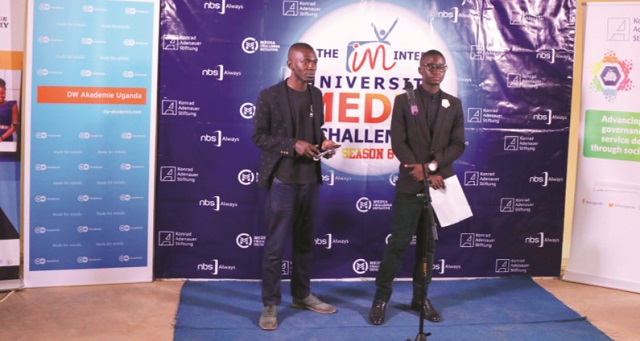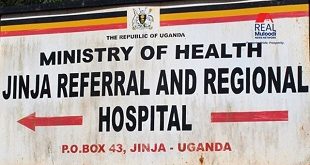
Organisation focuses on training of journalists amidst shrinking media freedoms
Kampala, Uganda | IAN KATUSIIME | A leafy compound on John Babiiha Avenue in Kololo, Kampala, has become home to a number of German organisations in Uganda, including known ones like KfW under their trademark ‘German Cooperation’ and newer ones like DW Akademie.
Although it is just one office on the second floor of the building, Miriam Ohlsen, the Country Representative of DW Akademie says it is gearing up for lots of work in Uganda.
DW Akademie has big goals, including training journalists to improve their work. The organization plans to work with Ugandan media organisations to improve access to information and help young people actively participate in democratic and developmental processes.
“When we look at the media industry we look at the important factors that matter politically, socially, economically because it’s embedded into a system,” Ohlsen tells The Independent.
“We have a much broader approach, where we think there should be a civil society who need to have media literacy skills in order to demand for certain information and quality, and the legal and regulatory side and education for the training of the journalists,” she says.
DW Akademie is teaming up with the Centre for Media Literacy and Community Development (CEMCOD) which advocates for freedom of speech and effective citizen participation, Hub for Investigative Media (an outfit that trains investigative journalists), and Uganda Radio Network (URN) a news agency and journalist training centre, and Media Challenge Initiative (MCI).
It also has universities on board; including the Uganda Christian University, Islamic University in Uganda, and UMCAT School of Journalism and Mass Communication.
Although DW has been running media related projects in Uganda since 2014, this is the first time it is opening an office in Kampala. Funded by the German Ministry for Cooperation and Development, it comes at a time of increasing clampdown on media freedom by a combined force of the Police and the Uganda Communication Commission. Recently, incidents include UCC’s banning of live coverage of parliamentary sessions to hide a brawl between MPs over the controversial age-limit aimed to make President Yoweri Museveni stay in power longer. The UCC claims live coverage would incite violence among the public.
Youth in media
DW plans to engage the youth more in media and community participation because it believes the youth demographic is critical.
“80% of the Ugandan population is below 30, and we thought there were gaps in terms of what the media provides for them,” says Ohlsen, “We felt they did not have where to share their concerns and also their participation seems low.”
According to her, when DW did a survey in 2015 of around 600 youth based in Mbale, Lira and Kampala, it found that most youth were interested in mostly entertainment, followed by topics like health and agriculture but responses to do with politics were few and far between. The youth were asked questions like what kind of media do you have access to? What kind of media do you use? What information do you look for? What information do you want the media to give you?
Armed with the findings of the survey, DW decided to focus on radio since it is the medium that reaches most youth, is easily interactive, and enables as many people as possible to express themselves. With URN and CEMCOD, DW has established a network of 250 citizen and community reporters who with their mobile phones are able to report for upcountry radios on toll free lines. URN and CEMCOD implement the concepts they work on with DW.
DW also says university media students back home in Germany get more practice than their Ugandan counterparts and want to change that. Ohlsen says DW’s hope is that the community participation will equip Ugandan media students with more training before they actively join the profession.
“We have done trainings on digital safety and security, when journalists become victims of political pressure,” Ohlsen says. She mentions apps like the Panic button created by Amnesty International where different texts go out for physical safety.
 The Independent Uganda: You get the Truth we Pay the Price
The Independent Uganda: You get the Truth we Pay the Price



We are truly grateful to Dw-Akademie for this noble and timely cause that is geared towards tackling a number of issues across the media devide and that will bring on board a number of young people to have a say in their development Agenda.